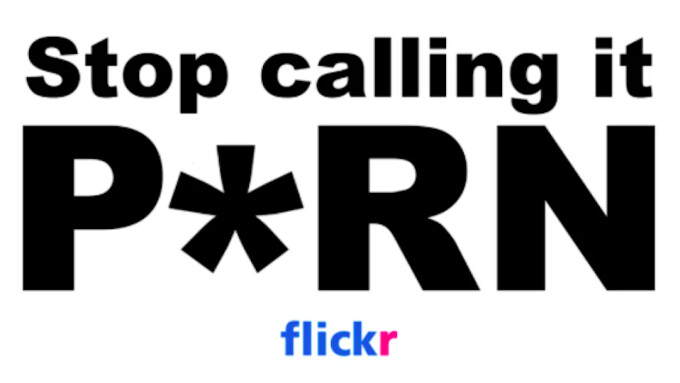SAN FRANCISCO — Photo sharing platform Flickr unveiled new terms of service last week, revealing that it will allow nudes and a few other types of sexual expression to be posted only by users who have paid for a Flickr Pro account.
The move is seen by photographers as a deliberate attempt by the late-2000s market leader to promote at least one clear competitive edge over the staunchly anti-female-nudity Instagram, which decimated Flickr's business through the 2010s.
Flickr's new TOS will go into effect starting in the second quarter of 2022.
The company is framing its revamped stance as a win for freedom of speech, yet is promoting it by stigmatizing other producers of erotica, launching a “Stop Calling It P*rn” campaign that imposes the company’s arbitrary distinctions to differentiate between permitted versus still-forbidden sexual content.
Flickr’s parent company — San Francisco-based SmugMug, which bought the company cheaply in 2018 after it had hemorrhaged many of its users to Instagram — rather grandiosely announced last Thursday that the new TOS “will help us continue to preserve the art, expression, history, stories and memories of all Flickr members for the next hundred years.”
“The first change relates to restricted and moderate content. You might call it NSFW, or explicit, or other terms, but we’ve gone ahead and defined them for Flickr,” the statement read.
Silicon Valley's 'Safety' Fetish
A link published with the statement leads to another page that, in a stigmatizing ideological hodgepodge typical of Silicon Valley moralism culture, conflates limiting or ghettoizing sexual content with “safety.”
“Safety levels let other members know that your content might contain nudity, sexuality or graphic imagery that some have chosen not to see,” Flickr instructs on its help pages. “Moderate your content and help avoid surprises.”
Users are advised to “set these levels on your images to help users filter out content they might want to avoid.”
According to Flickr's so-called “Safety Levels”:
Photos and videos should be categorized as:
Safe: Acceptable to a global, public audience
Moderate: Partial nudity, like bare breasts and bottoms
Restricted: full-frontal nudity and sexual acts; photos only — videos cannot contain restricted content and are deleted if reported
Accounts are categorized using the same safety levels. The account safety level can only be changed by Flickr staff.
Safe: All items have been correctly categorized (default setting)
Moderate: One or more moderate item is incorrectly categorized as safe
Restricted: One or more restricted item is miscategorized as safe or moderate
A Profitable 'Free Speech' Stance
Thursday’s announcement heralded Flickr's profitable change of TOS as a kind of “freedom of speech” stance, proclaiming that “photographers have long faced bans and deletion from nearly every online photography community for creating or sharing the ‘wrong’ type of art.”
“We’re rolling out changes to Flickr that welcome all photographers to discover, share and interact with photography, period,” the statement went on. “Photographers who craft and create work that might be considered risqué by some will have a safe place online to interact with one another, share mutual interests, and put their art into the world without the fear of it being removed or them being banned entirely from the communities they love.”
The “safe place online” will be available to content uploaders with a Flickr Pro account — which starts at $8.25/£6.99 monthly, or $72/£60 annually — and will “enable photographers to post otherwise-restricted content to their photostreams, along with the added benefit of unlimited photo uploads (free users are limited to only 1,000 uploads),” popular photo news site Digital Camera World reported.
“This move will enable more photographers to practice their craft fully,” CEO Don MacAskill told photo news site PetaPixel. “To us, that means they’re not just creating photography that can only live on their camera, but that they also have a home and a community to share those photographs with. By asking members with this type of content to subscribe to Flickr Pro, we can devote more resources to ensuring that their communities remain safe and well-regulated.”
It is still unclear what criteria Flickr will be using to differentiate between “erotic photography” and what it prudishly calls “p*rn.”








